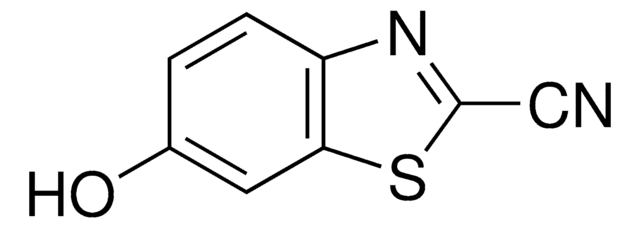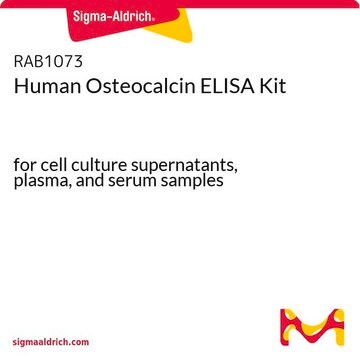MABS519-AF488
Anti-P40 Antibody, clone 11F12.1, Alexa Fluor™ 488
clone 11F12.1, from mouse, ALEXA FLUOR™ 488
Sinonimo/i:
Tumor protein 63, p63, Chronic ulcerative stomatitis protein, CUSP, Keratinocyte transcription factor KET, Transformation-related protein 63, TP63, Tumor protein p73-like, p73L, p40, p51, P40
About This Item
Prodotti consigliati
Origine biologica
mouse
Livello qualitativo
Coniugato
ALEXA FLUOR™ 488
Forma dell’anticorpo
purified antibody
Tipo di anticorpo
primary antibodies
Clone
11F12.1, monoclonal
Reattività contro le specie
human, mouse
tecniche
immunocytochemistry: suitable
N° accesso NCBI
N° accesso UniProt
Condizioni di spedizione
wet ice
modifica post-traduzionali bersaglio
unmodified
Informazioni sul gene
human ... TP63(8626)
Descrizione generale
Specificità
Immunogeno
Applicazioni
The unconjugated version (Cat. No. MABS519) has been shown to work in WB, IH(P).
Signaling
Signaling Neuroscience
Qualità
Immunocytochemistry Analysis: A 1:100 dilution of this antibody detected P40 in NIH/3T3 cells.
Descrizione del bersaglio
Stato fisico
Stoccaggio e stabilità
Altre note
Note legali
Esclusione di responsabilità
Non trovi il prodotto giusto?
Prova il nostro Motore di ricerca dei prodotti.
Codice della classe di stoccaggio
10 - Combustible liquids
Classe di pericolosità dell'acqua (WGK)
WGK 2
Punto d’infiammabilità (°F)
Not applicable
Punto d’infiammabilità (°C)
Not applicable
Certificati d'analisi (COA)
Cerca il Certificati d'analisi (COA) digitando il numero di lotto/batch corrispondente. I numeri di lotto o di batch sono stampati sull'etichetta dei prodotti dopo la parola ‘Lotto’ o ‘Batch’.
Possiedi già questo prodotto?
I documenti relativi ai prodotti acquistati recentemente sono disponibili nell’Archivio dei documenti.
Il team dei nostri ricercatori vanta grande esperienza in tutte le aree della ricerca quali Life Science, scienza dei materiali, sintesi chimica, cromatografia, discipline analitiche, ecc..
Contatta l'Assistenza Tecnica.






